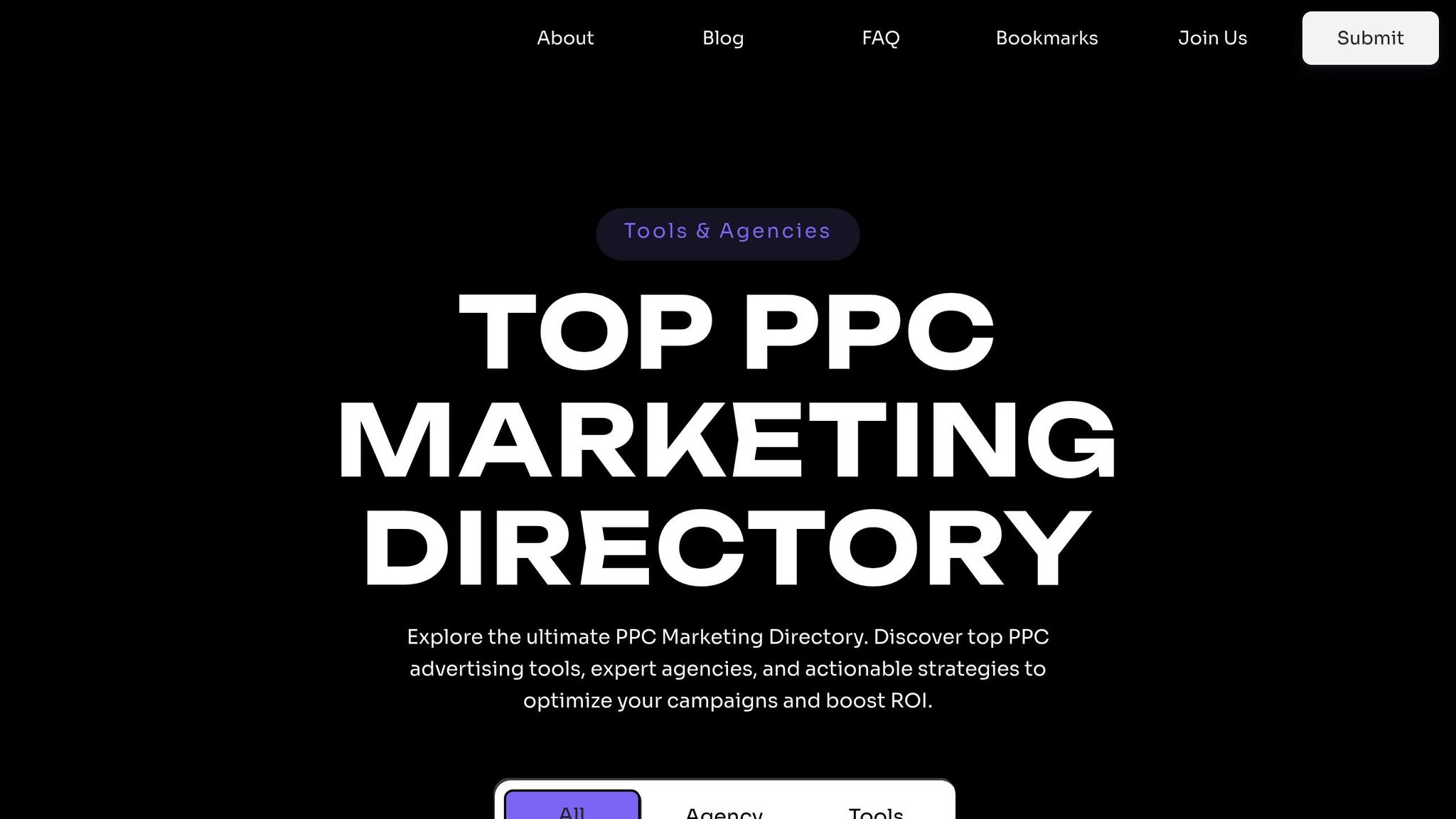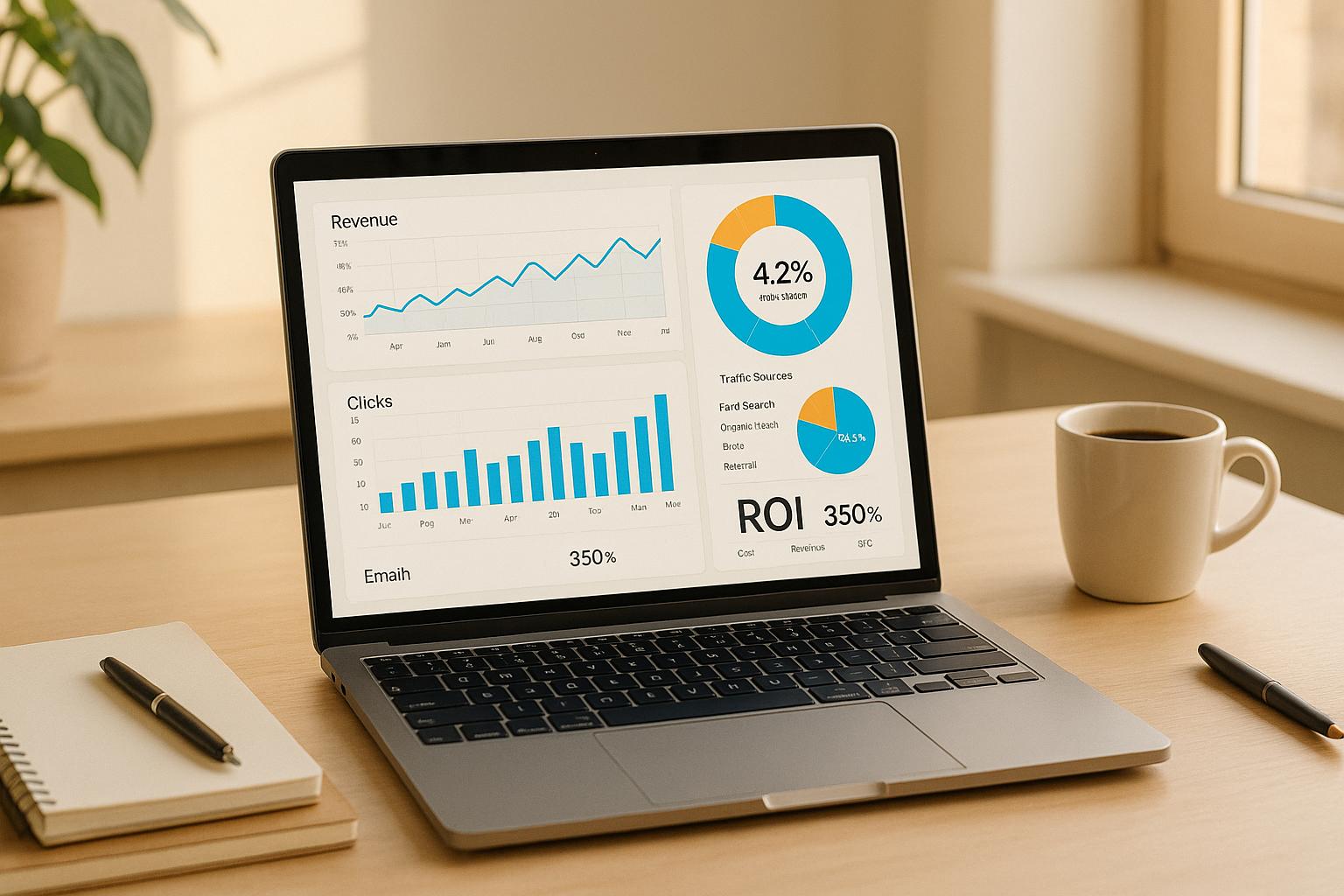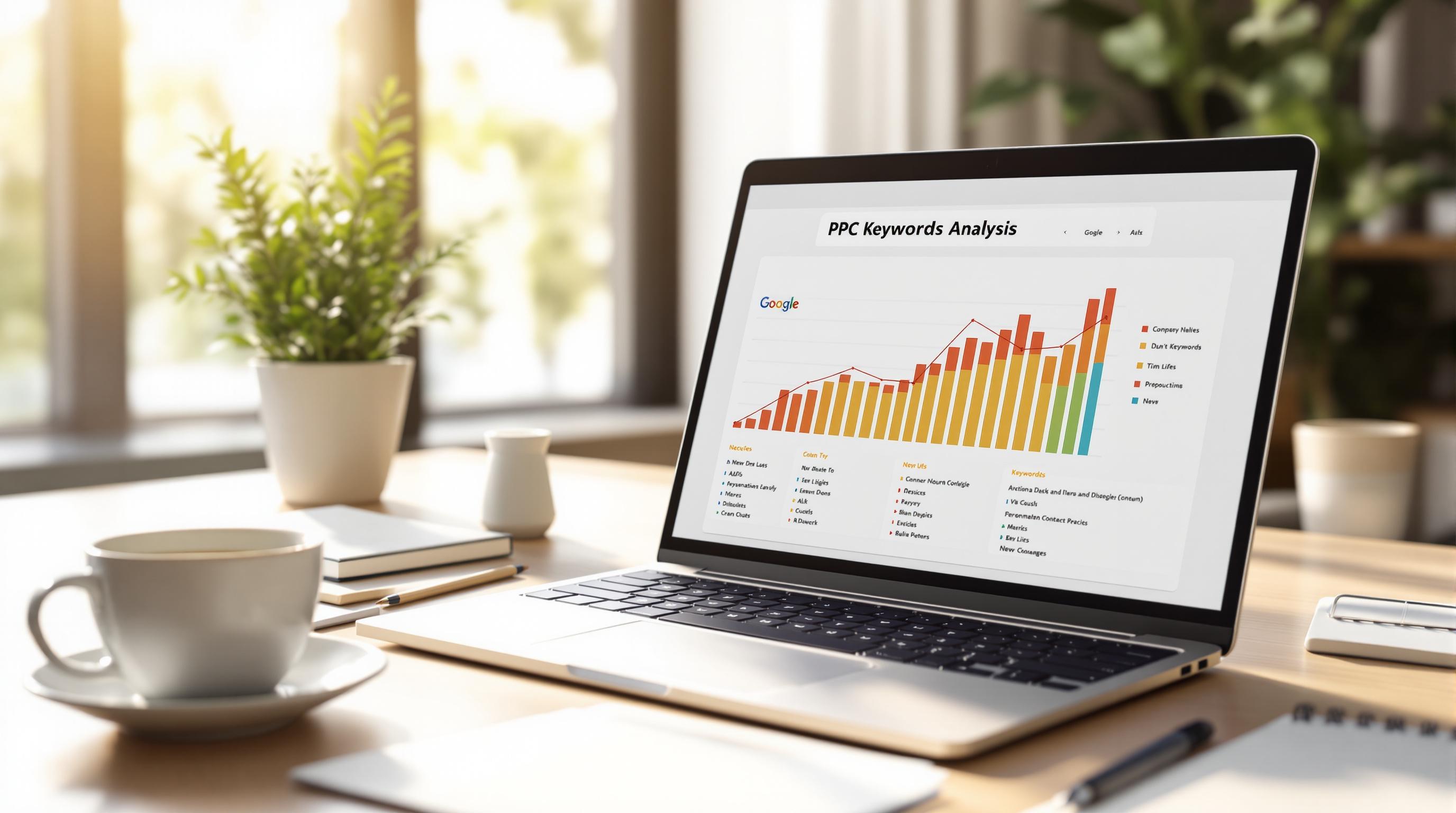Want to maximize your PPC campaign results without breaking the bank? Here's how:
- Set SMART goals: Focus on specific, measurable, and time-bound objectives like reducing Cost Per Acquisition (CPA) or improving Return on Ad Spend (ROAS).
- Target low-cost keywords: Use tools like Google Keyword Planner to find long-tail, question-based, or location-specific keywords with lower competition.
- Allocate your budget wisely: Split funds between proven keywords (50%), new opportunities (30%), and remarketing (20%).
- Choose the right bid strategy: Manual bidding offers control, while automated bidding saves time and optimizes for conversions.
- Track and optimize performance: Monitor key metrics like CPC, CTR, and Quality Score weekly. Adjust bids, refresh ad copy, and improve landing pages to maintain efficiency.
Pro Tip: Use bid management tools to automate adjustments and analyze data in real time for better results.
Basics of PPC Bid Prioritization
What Bid Prioritization Means
PPC bid prioritization involves ranking keywords and ad placements based on their potential return on investment (ROI). This approach helps direct your budget toward keywords with lower costs per click (CPC) that are more likely to drive conversions.
Advantages of Targeting Low-Cost PPC Keywords
- Stretch Your Budget: Focus on low-cost keywords to gain more clicks and conversions without overspending.
- Lower Acquisition Costs: Prioritize cost-efficient keywords to reduce your cost per acquisition (CPA) [2].
Once you've grasped these basics, the next step is to set clear PPC campaign goals that align with your bid priorities.
Amazon PPC Strategy - Big Budget Small Bids
PPC Campaign Goals
Once you've got the basics of bid prioritization down, it's time to turn those insights into clear, actionable goals.
Setting Clear, Actionable Goals
To tie bid prioritization to real results, use the SMART framework for your campaign objectives:
- Specific: Focus on high-performing keywords.
- Measurable: Define clear CPC and CPA targets.
- Achievable: Base goals on historical performance data.
- Relevant: Ensure objectives support your business priorities.
- Time-bound: Set deadlines to track progress effectively.
After defining these goals, make sure they fit within your available budget.
Aligning Goals with Your Budget
Distribute your budget across your SMART goals thoughtfully. For instance:
- 50% for keywords with proven conversion rates.
- 30% for testing new keyword opportunities.
- 20% for remarketing efforts.
If your campaign budget is under $10,000 per month, consider using simple bid-management tools to handle essential tasks efficiently without adding unnecessary complexity.
Finding Low-Cost PPC Opportunities
Once you've set your SMART goals and determined your budget, the next step is identifying affordable keywords to get the most out of your PPC campaigns.
Keyword Research Tips
Focus on keywords that have less competition but still drive conversions. Use tools like Google Keyword Planner to analyze search volume and competition levels. Here's how to narrow down your options:
- Long-tail keywords: These are more specific and often have lower competition, making them cost-effective.
- Question-based phrases: Keywords starting with "how", "what", or "why" tend to face less competition and align with user intent.
- Location-specific terms: Adding geographic modifiers (like city or neighborhood names) makes your ads more relevant and often reduces costs.
This refined keyword list will serve as the backbone of your bidding strategy.
Market Research Essentials
To make your PPC campaigns more effective, consider these steps:
-
Competitive Analysis
Study what your competitors are doing. Look at their keywords, ad schedules, and seasonal trends to find opportunities they might have missed. -
Historical Performance Review
Review data from your past campaigns. Identify which keywords performed well, the most cost-efficient time periods, and ad copy that resonated with your audience. -
Audience Behavior Analysis
Learn when your target audience is most active. Use this information to adjust your bid timing and allocate your budget more effectively.
These insights will guide your bidding strategy and help you make smarter decisions in the next phase.
sbb-itb-89b8f36
Bid Strategy Setup and Management
Set up your bid strategy to get the most out of your budget while keeping costs in check.
Manual vs. Automated Bidding
Manual bidding lets you control each keyword bid directly, making it a good choice for tight budgets or testing specific strategies. On the other hand, automated bidding relies on machine learning to adjust bids for better conversions, saving you time on management. Check out the Top PPC Marketing Directory for tools that fit your budget and goals.
Once your bids are running, focus on tracking performance to fine-tune and improve your results.
Performance Tracking
Keep an eye on your campaign's performance to fine-tune your low-cost PPC strategy. Focus on key metrics and make regular adjustments to ensure you're on track.
Key PPC Metrics to Watch
Here are the metrics you should monitor closely:
- Click-Through Rate (CTR): The percentage of users who click on your ad.
- Cost Per Click (CPC): The average amount you pay for each click.
- Conversion Rate: The percentage of clicks that result in a desired action (like a purchase or sign-up).
- Cost Per Acquisition (CPA): The total cost to gain a new customer.
- Quality Score: Google's rating of your ad's relevance and the user experience on your landing page.
- Return on Ad Spend (ROAS): The revenue generated for every dollar spent on ads.
Use tools from the Top PPC Marketing Directory to track these metrics daily. This will help you identify trends and uncover areas for improvement.
To stay on target, align these metrics with your SMART CPC and CPA goals. This connection ensures every tweak you make brings you closer to achieving your ROI targets.
Steps for Regular Optimization
Consistent optimization is key to keeping costs under control and maintaining performance. Here’s what to do:
Weekly Bid Adjustments
- Raise bids for keywords that drive conversions.
- Lower bids for keywords that are expensive but underperforming.
- Pause keywords that haven’t delivered any conversions within a set timeframe.
Budget Allocation
- Focus most of your budget on high-performing keywords.
- Set aside a portion for testing new keywords.
- Keep some funds in reserve to handle unexpected changes or opportunities.
Improving Quality Score
- Refresh ad copy for your most important keywords.
- Experiment with different landing page designs to see what works best.
- Remove or refine keywords with poor quality scores.
Bid Management Tools
Once you've analyzed performance, it's time to choose the right bid management tools. Look for options that offer automated bid adjustments, conversion tracking, data integration, and real-time monitoring. These features can help you achieve cost-effective PPC results with maximum impact.
Key Features of the Top PPC Marketing Directory

The Top PPC Marketing Directory is a resource designed to help you find bid management tools that align with your PPC goals. Here's what the directory provides:
- Centralized campaign management for handling multiple platforms in one place
- Automated bidding tailored to hit your cost targets
- Real-time performance insights with detailed analytics
- Integration with major ad platforms for smooth operations
You can also filter tools based on your budget and preferred level of automation, making it easier to find the perfect match for your campaign needs.
Conclusion
Now that your campaign is up and running, and you have metrics to analyze, it's time to focus on refining and improving. With SMART goals in place, affordable opportunities identified, and bids adjusted, keep optimizing to achieve cost-efficient PPC results.
Here's a quick recap of the key steps: setting SMART goals, selecting keywords based on data, balancing manual and automated bid strategies, and leveraging real-time tracking. The Top PPC Marketing Directory offers tools to simplify campaign management, including automation, analytics, keyword research, and A/B testing.
Check out the Top PPC Marketing Directory for a selection of tools to help with bid management, analytics, and testing. Make it a habit to review your bids weekly and shift your budget based on performance trends.


